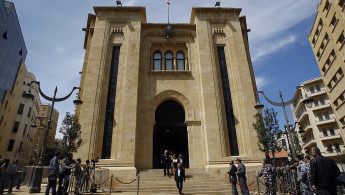Lebanon: Fitch credit ratings agency warns of elections' impact on economy
A leading international credit ratings agency warned on Friday that the results of this month's parliamentary elections in Lebanon make it difficult for any coalition to have a governing majority, potentially complicating implementation of reforms.
Shortly after the warning from Fitch Ratings, the Lebanese pound briefly hit new lows against the dollar, causing chaos in markets around the country.
Lebanon is in the grips of the worst economic and financial crisis in its modern history.
By late afternoon on Friday, the pound made gains of nearly 20 percent after the central bank governor said those who have pounds and need dollars will be able to buy US currency through local banks as of next week at a rate lower than that of the black market.
Governor Riad Salameh's announcement appears to be another attempt to temporarily ease markets amid chaos related to the sharp drop of the pound, which has hit new lows on almost daily basis since the 15 May parliamentary elections brought a deeply-divided legislature.
The new lows – reaching 37,900 pounds to the dollar – came after Fitch's warning said that efforts by any camp to form a stable governing majority in parliament will face challenges, further complicating "the country's ability to implement financial and economic reforms".
These reforms are preconditions for support from the International Monetary Fund and other international partners, which in turn could pave the way for Lebanon's exit from default on its sovereign obligations.
Despite easing markets, Salameh's move likely means that the central bank will be using its dwindling foreign currency reserves, which have been dropping at a dramatic rate since Lebanon's economic meltdown began in October 2019.
After Salameh's statement the dollar was selling for about 31,000 pounds.
Lebanon's economic crisis is rooted in decades of corruption and mismanagement by the political elites that have dominated the country.
Since the meltdown began, they have done almost nothing to implement reforms demanded by the international community to release billions of dollars in investments and loans.





 Follow the Middle East's top stories in English at The New Arab on Google News
Follow the Middle East's top stories in English at The New Arab on Google News


